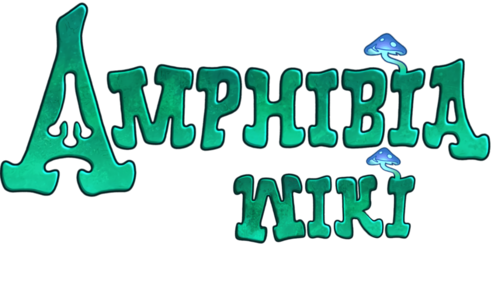Template:Project The manual of style serves as a reference to help maintain uniformity of all articles in the Amphibia Wiki. Please keep in mind that these serve as guidelines and not rules. Though these guidelines are enforced across the wiki, certain exceptions to these can apply when necessary. The manual of style is ultimately dictated by the community, and as such, this manual is subject to change at any time.
Before editing, please make sure to read the wiki's Rules!
General
Language
For the purpose of maintaining consistency, and because the subject of this wiki originates from the United States, words on this wiki should conform to the spelling used in American English. This applies only to main namespace pages, not talk or user pages. Although no user should be harassed or punished for using other regional spellings of words, editors are encouraged to conform text in articles to U.S. spelling. If you come across a word spelled the way it is in another country (for example if you see "color" spelled as "colour"), just change it to the U.S. English spelling and be done with it.
Articles
Avoid making articles with conjectural titles. Please make sure the article name for a subject is its official name. Similarly, please do not use nicknames or alternate names for an article's title. (e.g. "Anne Boonchuy" instead of "Main Character.")
Article names must also be written in the singular form rather than the plural. (e.g. "Dog" instead of "Dogs.") Certain exceptions may apply, such as if an article is a list. (e.g. "List of dogs.") Additionally, the definite article (the) and indefinite articles (a/an) should be avoided in article titles except when they are part of an official title.
When starting an article, make sure to always include at least a single sentence about the subject. This sentence should include a brief definition of the subject, and don't forget to bold the first instance of the article name.
POV
Situations must be discussed in a disinterested tone, giving no bias or preferences and avoiding giving unimportant issues undue weight. Avoid the use of imperative form and second person (you) when writing articles.
Formatting
Capitalization of article titles and section headers should include the first letter of the first word being a capital letter, but it should otherwise follow the normal English rules of capitalization. For example, a section title should be "External links" instead of "External Links." An exception is the capitalization of article titles for characters.
When bolding an article's title within the article itself, only the first instance of the article's name should be bolded. In instances where alternate names or nicknames for the article's title are added, the first instances of them should also be bolded. Here is an example of this:
- A bag (also known regionally as a sack) is a common tool in the form of a non-rigid container. The use of bags predates recorded history, with the earliest bags being no more than lengths of animal skin, cotton, or woven plant fibers, folded up at the edges and secured in that shape with strings of the same material.
When viewed in Source mode, this is what it would look like.
A '''bag''' (also known regionally as a '''sack''') is a common tool in the form of a non-rigid container. The use of bags predates recorded history, with the earliest bags being no more than lengths of animal skin, cotton, or woven plant fibers, folded up at the edges and secured in that shape with strings of the same material.
When referring to the names of media, such as the title of a television show, these should be italicized (e.g. Amphibia) while things like episode names should be surrounded with quotation marks. (e.g. "Episode name" from Season 1)
Stubs
Do not add the "Article stubs" category directly to an article. Instead, append {{stub}} to the beginning of an article. Articles should only be marked as a stub if the article is incomplete and is missing some basic information.
Linking
Linking is usually limited to the first occurrence of the word or phrase in each article, not counting links inside infoboxes. This is because spamming too many wiki links makes articles difficult to read. Adding multiple links for the same term might be acceptable in very long articles, where linked instances of the term are very far apart. Another exception to this is if multiple links lead to different sections on the same page.
